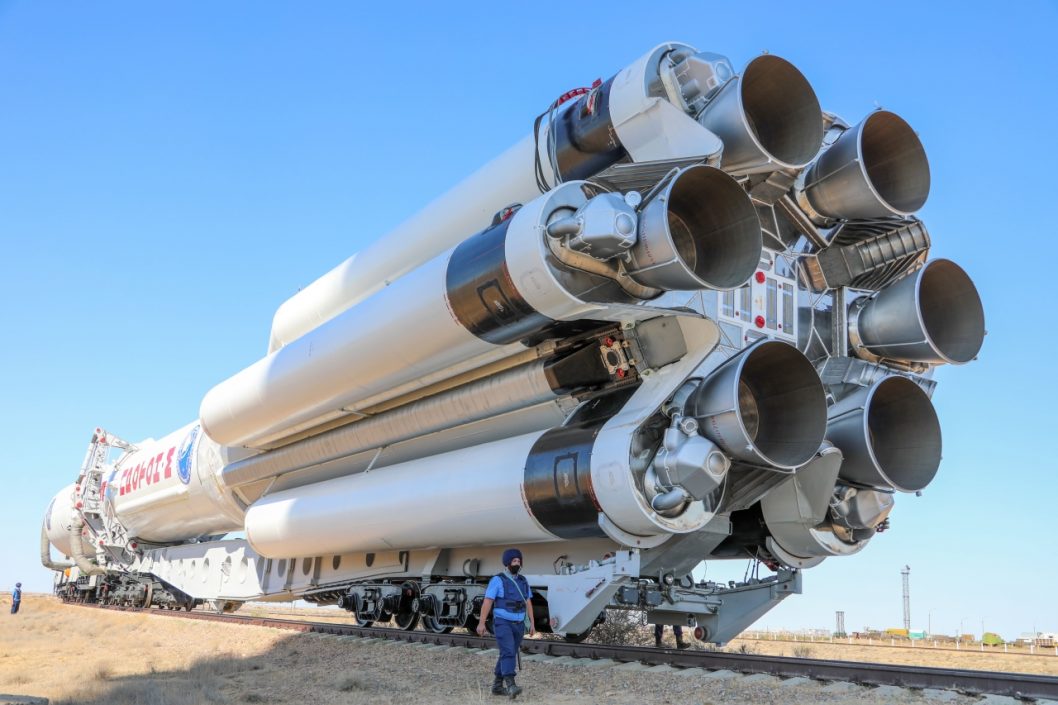After 14 years of sliding completion of the module called Nauka, or Science, it will be launched on July 21, 2021, at 16:58 GMT, from Baikonur, then docked at the space station on the 29th. The launch is carried out using a heavy Proton-M rocket, which is a NASA, a Roscosmos Also live broadcast but We can also display it with Hungarian comment startup.
At the moment, the new 20-ton unit “bare” (of course, its weight is also limited by the power of the rocket), is moving on the ground-facing port of the Zvezda module, and in a few months it will have 4 can also join the docking port spaceship.
Originally designed and started as a version of the Lock unit, it was then abandoned, and then, after numerous re-contracts, redesigns, alterations, delays and repairs, was finally completed in 2021, instead of planned for 2007.
Illustration of the Nauka unit, with its solar panels, cooling pad and ERA robotic arm.
Source: Wikipedia
The Nauka will be able to produce oxygen, purify water, contain a human-designed sleeping area, a wash basin, and, worthy of the name, will also house science instruments in a 70-cubic-foot living space. The unit will also include a European External Robotic Arm (ERA) that will be able to perform a number of tasks previously performed only by spacewalks instead of Russian cosmonauts, thus shortening the time spent outdoors. In addition to the many functions of the robot arm, you will also be able to lift the astronaut on the spacecraft out of the space station, saving you a lot of time. In addition, a number of cameras will be available to inspect the outer surface of the space station.
Nauka’s dismissal this year is particularly bizarre, as Roscosmos wants to back out of the ISS operation, mostly for economic and political reasons, and has repeatedly said he wants his own space station, a question about how the Russian space agency can solve this from its shrinking budget. After years of monopolies in transporting astronauts being broken by the spaceships of NASA’s commercial partners, his financial interests are no longer explicitly tied to the International Space Station.
In order to connect the Nauka to the space station, space must also be made for it, as the berth port currently occupied by the Progress cargo ship will be separated from the International Space Station. The maneuver will take place on July 23, with the cargo ship taking port with it, and after a few hours over the Pacific Ocean, both are sufficient in the atmosphere.
The International Space Station is currently scheduled to operate until 2028, but its lifespan has already been extended several times. Additional extensions may be limited by the wear of each old unit, the accumulation of errors, so after a while, the moment will come when it will not make sense to repair or correct them.












































